Becoming a new mom can be an exciting, transformative journey, but it comes with its fair share of challenges. The postpartum period refers to the time after birth, where throughout the next six weeks, your body will try to recover from the intense nine months of pregnancy you experienced. During this time, these adjustments can be physically and mentally challenging. To help support new mothers, we’ll provide some essential tips for creating a postpartum plan to help you smooth your transition into motherhood.
Preparing To Be a New Mom: How Postpartum Period Affects New Mothers
The postpartum period, also known as the fourth trimester, is the mother’s adjustment process after giving birth. Throughout the next six weeks, women undergo many physical and emotional changes, many of which can be stressful and sometimes even painful. Some of the ways that the postpartum period affects new mothers include:
Physical Changes: During pregnancy, a woman’s body undergoes significant changes to accommodate the growing baby. After their delivery, new mothers may experience uterine contractions, breast size changes, vaginal bleeding, and increased hormone fluctuations.
Emotional Changes: The postpartum period can be an emotional rollercoaster for new mothers, as they may experience mood swings, tearfulness, and sadness within their first week after giving birth. In other cases, postpartum depression, anxiety, or psychosis can impact your well-being, requiring medical attention to help manage during the transition.
Alongside these challenges, new mothers will experience significant life changes to their daily lives and routines, including sleep deprivation, breastfeeding challenges, and shifts in their identity. At Rosenberg Maternal-Fetal Medicine, we recommend that new mothers have a postpartum plan to help them transition into motherhood and keep track of their physical or emotional challenges.
To help prepare for your postpartum phase, here are some considerations to take in mind and some strategies we recommend to include in your plan:
- Family Support Network: Build or have a reliable system of partners, friends, and family that you can rely on for help with specific tasks such as cooking, cleaning, and running errands so you can focus on your recovery.
- Rest and Recovery: Your body needs time to heal after childbirth, so setting up an environment in your home where you can be comfortable and organized will help smooth the transition to motherhood easier.
- Meal Plans: Having nutritious meals in mind can improve your recovery and help reduce the stress of daily tasks. These include meal delivery services and even freezer-friendly foods.
- Mental Health Support: Make sure you have a mental health professional on hand while recovering.
- Gentle Exercises and Physical Therapy: One way you can help recover better is with gentle exercises, which can help improve your mood and boost your energy levels.
Contact Rosenberg Maternal-Fetal Medicine Today!
Creating a postpartum plan can greatly benefit new moms as they navigate the early weeks and months of motherhood. At Rosenburg Maternal-Fetal Medicine, we provide comprehensive care to expectant mothers with high-risk pregnancies. Contact us today to learn more about our services by calling Hewlett at (516) 501-9840 or Suffern at (845) 764-9880 locations for an appointment.

